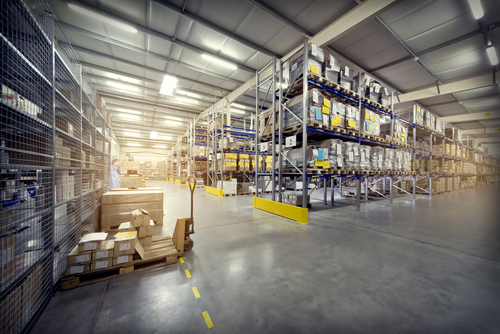
Bangalore, often referred to as the “Silicon Valley of India,” is not only known for its thriving IT industry but also for its robust logistics and supply chain sector. With its strategic location in South India and excellent connectivity through road, rail, and air, Bangalore has emerged as a key player in warehousing and distribution. This article explores the significance of warehouses in Bangalore, their growth trajectory, and their vital role in supporting the logistics and supply chain ecosystem.
1: The Rise of Warehousing in Bangalore
In recent years, Bangalore has witnessed a significant surge in the demand for warehousing services in India. Several factors contribute to this rise:
1.1. Booming E-commerce Sector: Bangalore is a hub for e-commerce companies, both domestic and international. Giants like Amazon, Flipkart, and Myntra have set up massive fulfillment centers in and around the city to cater to the ever-growing online shopping trend. These fulfillment centers serve as large-scale warehouses, ensuring efficient storage and distribution of products.
1.2. Manufacturing and Industrial Growth: The city’s industrial and manufacturing sectors have also seen remarkable expansion. This has led to increased demand for storage space for raw materials, finished goods, and spare parts. Warehouses in Bangalore have adapted to accommodate the diverse needs of these industries.
1.3. Proximity to Major Markets: Bangalore’s strategic location places it in close proximity to major consumption hubs in South India. This geographical advantage makes it an ideal choice for companies looking to establish distribution centers to serve the southern states efficiently.
2: Key Features of Warehouses in Bangalore
Warehouses in Bangalore are designed and equipped to meet the specific requirements of various industries. Some of the key features that make them attractive options for businesses include:
2.1. State-of-the-Art Infrastructure: Many warehouses in Bangalore boast modern infrastructure, offering high ceilings, ample loading docks, advanced security systems, and temperature-controlled storage facilities. This ensures the safe storage of a wide range of products, including perishables and sensitive electronics.
2.2. Robust Connectivity: The city’s extensive road network, including national highways and expressways, ensures seamless transportation of goods to and from warehouses. Additionally, Bangalore is well-connected by rail and air, further enhancing its logistics capabilities.
2.3. Technology Integration: To optimize operations and streamline inventory management, warehouses in Bangalore have adopted cutting-edge technologies such as warehouse management systems (WMS), RFID tracking, and automation. These innovations improve efficiency and reduce human error.
3: The Role of Warehouses in the Supply Chain
Warehouses play a pivotal role in the supply chain ecosystem, acting as crucial intermediaries between manufacturers and consumers. In Bangalore, these roles are amplified due to the city’s strategic importance.
3.1. Inventory Management: Warehouses in Bangalore facilitate efficient inventory management by providing a centralized location for storing goods. This enables businesses to maintain adequate stock levels, reducing the risk of stockouts and overstocking.
3.2. Order Fulfillment: E-commerce companies rely heavily on warehouses to fulfill customer orders promptly. The proximity of warehouses to consumers in South India ensures faster delivery times, enhancing the overall customer experience.
3.3. Cost Savings: Effective warehousing can lead to cost savings in transportation, as businesses can take advantage of economies of scale. By consolidating goods in a single location, transportation costs per unit are reduced.
4: Warehousing Challenges in Bangalore
Despite its advantages, the warehousing sector in Bangalore faces several challenges:
4.1. Land Costs: The skyrocketing cost of land in Bangalore is a significant concern for warehouse operators. High land prices can impact the overall profitability of warehouse operations, leading to increased rents for tenants.
4.2. Traffic Congestion: Bangalore is infamous for its traffic congestion, which can cause delays in the transportation of goods to and from warehouses. This issue requires effective transportation planning and management solutions.
4.3. Competition for Space: As demand for warehousing space continues to grow, competition among businesses for prime warehouse locations has intensified. This competition can make it challenging for new entrants to secure suitable facilities.
5: Future Trends in Warehousing
To address the challenges and meet the evolving demands of businesses, the warehousing industry in Bangalore is adapting to various future trends:
5.1. Sustainability Initiatives: Warehousing services in India are increasingly adopting eco-friendly practices such as solar power, rainwater harvesting, and energy-efficient lighting to reduce their environmental footprint.
5.2. Automation and Robotics: The integration of automation and robotics in warehouses is set to increase, enhancing efficiency and reducing labor costs.
5.3. Multi-Modal: Transportation: To combat traffic congestion, warehouses are exploring multi-modal transportation solutions, including rail and inland waterways, to reduce dependence on road transport.
Conclusion
Warehouses in Bangalore are not just places for storing goods; they are the backbone of the city’s logistics and supply chain ecosystem. With their modern infrastructure, strategic location, and adaptation to technological advancements, these warehouses continue to play a pivotal role in supporting the growth of various industries. As the warehousing sector evolves to meet the challenges and opportunities of the future, Bangalore is poised to maintain its status as a thriving hub for logistics and supply chain management.
Also Read: Unlocking the Potential: The Rise of Warehouses in Ahmedabad